July 19 stands as one of history’s most eventful days, witnessing the rise and fall of empires, groundbreaking discoveries, and moments that shaped our modern world across centuries of human achievement.
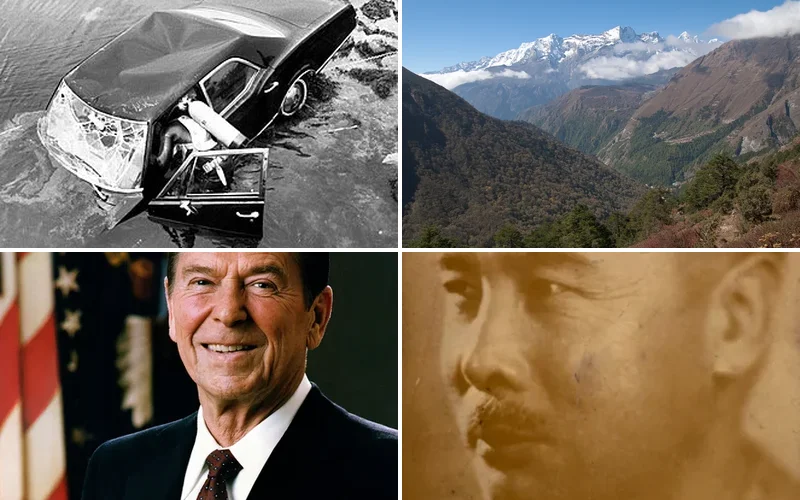
Politics and Government Events on July 19
1947 – Burmese Shadow Government Leader Assassinated
Prime Minister Bogyoke Aung San of Burma’s shadow government fell victim to assassination along with eight others on this pivotal day. The murders struck at the heart of Burma’s independence movement during crucial negotiations with British authorities.
The killings devastated Burma’s political landscape and altered the nation’s path toward independence. Aung San’s death removed the most influential voice for Burmese self-determination.
1979 – Sandinista Revolution Triumphs in Nicaragua
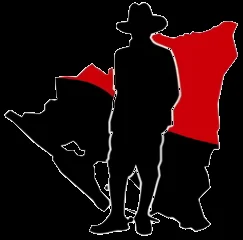
The Sandinista rebels achieved their ultimate victory by overthrowing the Somoza family government in Nicaragua. Revolutionary forces swept into Managua as the decades-long dictatorship finally collapsed.
The triumph marked the end of 43 years of Somoza rule and transformed Nicaragua’s political landscape. International observers watched as a new socialist government took control of Central America’s strategic crossroads.
1981 – French President Reveals Soviet Espionage
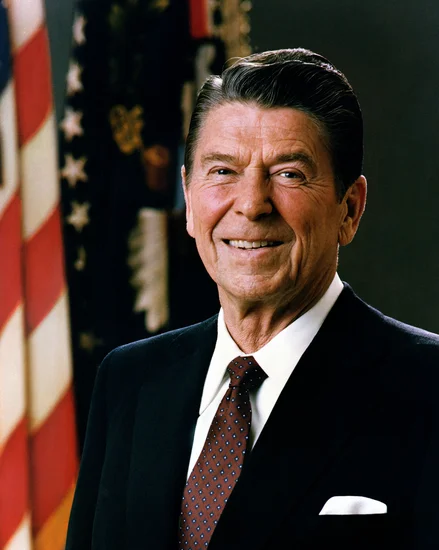
French President François Mitterrand secretly informed U.S. President Ronald Reagan about the existence of the Farewell Dossier. The documents revealed extensive Soviet theft of American technological research and development.
This intelligence sharing marked a crucial moment in Cold War espionage relations. The revelation helped both nations understand the scope of Soviet industrial espionage operations.
1947 – Korean Political Leader Assassinated
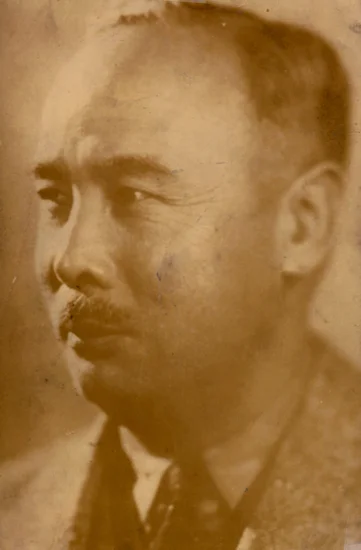
Korean politician Lyuh Woon-hyung was assassinated during the turbulent period following World War II. His death eliminated a key moderate voice in Korean politics during the nation’s division.
The murder deepened political instability as Korea struggled between competing ideologies. Lyuh’s assassination contributed to the hardening of divisions that would lead to the Korean War.
2011 – Guinean President Survives Assassination Attempt
Guinean President Alpha Condé survived a dramatic assassination attempt and coup d’état at his residence in Conakry. Security forces successfully repelled the attackers after intense fighting.
The failed coup highlighted continuing political instability in Guinea following decades of military rule. Condé’s survival allowed the democratic transition to continue despite serious challenges.
2018 – Israel Passes Controversial Nationality Bill
The Knesset passed the controversial Nationality Bill, formally defining Israel as the nation-state of the Jewish people. The legislation sparked intense debate about minority rights and democratic principles.
Arab citizens and international observers criticized the law as discriminatory and divisive. The bill’s passage marked a significant shift in Israel’s constitutional framework and national identity.
Military and Naval History on July 19
1916 – Battle of Fromelles Begins
British and Australian troops launched a devastating attack against German trenches in the Battle of Fromelles. The assault formed part of the larger Battle of the Somme during World War I’s bloodiest year.
The battle resulted in horrific casualties with little territorial gain achieved. Over 5,500 Australian soldiers became casualties in their first major Western Front engagement.
1940 – Royal Navy Triumphs at Cape Spada
The Royal Navy clashed with the Italian Regia Marina in the Battle of Cape Spada off Crete. British forces sank the Italian light cruiser Bartolomeo Colleoni with 121 casualties.
The victory demonstrated British naval superiority in the Mediterranean despite Italian numerical advantages. The battle boosted Allied morale during the darkest days of 1940.
1940 – Hitler Appoints First War Field Marshals
Adolf Hitler conducted his first field marshal ceremony of World War II, promoting officers for military achievements. The unprecedented mass promotion reflected Germany’s early war successes.
Twelve generals received the coveted field marshal’s baton in recognition of the successful campaigns in Poland, Norway, and France. The ceremony marked the peak of German military confidence.
1942 – U-Boat Happy Time Ends
Hitler’s submarines concluded their devastating Second Happy Time as American convoy systems proved increasingly effective. German U-boats retreated to the central Atlantic after months of success.
The shift marked a turning point in the Battle of the Atlantic. American naval defenses had finally adapted to counter the submarine threat along the Eastern seaboard.
1943 – Rome Suffers Massive Allied Bombing
More than 500 Allied aircraft heavily bombed Rome, inflicting thousands of casualties on the Italian capital. The massive air raid targeted transportation hubs and military installations.
The bombing marked a psychological blow to Italian morale and demonstrated Allied air superiority. Pope Pius XII personally visited bomb sites, highlighting the attack’s impact on civilian populations.
1972 – British SAS Fights in Oman
British SAS units assisted the Omani government against Popular Front for the Liberation of Oman rebels in the Battle of Mirbat. The elite forces helped defend a crucial strategic outpost.
The engagement demonstrated Britain’s continued military involvement in Middle Eastern conflicts. SAS effectiveness in counterinsurgency operations proved decisive in maintaining government control.
Science and Discovery Milestones on July 19
1977 – First GPS Signal Transmitted
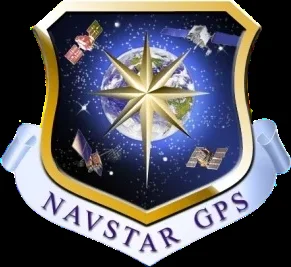
The world’s first Global Positioning System signal was transmitted from Navigation Technology Satellite 2 at 12:41 a.m. Eastern time. Rockwell Collins in Cedar Rapids, Iowa, successfully received the historic transmission.
This groundbreaking moment launched the GPS era that would revolutionize navigation, commerce, and daily life. The technology would eventually become indispensable for everything from smartphones to military operations.
1963 – X-15 Reaches Record Altitude

Test pilot Joe Walker flew the North American X-15 to a record altitude of 106,010 meters on Flight 90. The achievement exceeded 100 kilometers, qualifying as human spaceflight under international convention.
Walker’s flight pushed the boundaries of atmospheric flight and contributed vital data for future space missions. The X-15 program bridged aviation and space exploration during the early Space Age.
1983 – First 3D CT Head Reconstruction
Medical researchers published the first three-dimensional reconstruction of a human head using computed tomography. The breakthrough represented a revolutionary advancement in medical imaging technology.
This innovation transformed diagnostic medicine and surgical planning capabilities. Three-dimensional imaging would become standard practice in hospitals worldwide within decades.
1979 – Oil Tanker Collision Creates Massive Spill
The oil tanker SS Atlantic Empress collided with another tanker, causing the largest ship-borne oil spill in history. The disaster released millions of barrels of crude oil into Caribbean waters.
The environmental catastrophe highlighted the dangers of maritime oil transportation. New safety regulations and double-hull requirements emerged from lessons learned in this disaster.
Cultural and Arts Events on July 19
1957 – Evelyn Waugh’s “The Ordeal of Gilbert Pinfold” Published
The largely autobiographical novel “The Ordeal of Gilbert Pinfold” by Evelyn Waugh was published to critical acclaim. The work explored themes of mental breakdown and artistic isolation.
Waugh’s honest portrayal of psychological distress broke new ground in literary fiction. The novel’s frank treatment of mental health issues influenced a generation of writers.
1936 – People’s Olympiad Cancelled Due to Spanish Civil War
The CNT and UGT called a general strike in Spain, mobilizing workers’ militias against Nationalist forces. The political upheaval forced cancellation of the People’s Olympiad in Barcelona.
The alternative Olympics had been organized to protest the 1936 Berlin Games under Nazi rule. The cancellation symbolized how political conflict disrupted international cultural exchange.
1992 – Judge Paolo Borsellino Assassinated

A car bomb killed Italian anti-mafia judge Paolo Borsellino and five members of his security escort. The assassination shocked Italy and demonstrated the Mafia’s continued power.
Borsellino’s death occurred just months after his colleague Giovanni Falcone was killed in similar circumstances. The murders galvanized Italian public opinion against organized crime.
Religious and Social Events on July 19
1961 – Tunisia Blockades French Naval Base
Tunisia imposed a blockade on the French naval base at Bizerte, escalating tensions with its former colonial power. The confrontation tested Tunisia’s sovereignty four years after independence.
French forces would capture the entire town four days later, causing an international crisis. The incident highlighted ongoing struggles between newly independent nations and former colonial powers.
1985 – Italian Dam Collapse Kills 268
The Val di Stava dam collapsed catastrophically, killing 268 people in the Italian Alps. The disaster devastated the mountain community and raised questions about dam safety.
The tragedy resulted from structural failures in the tailings dam serving local mining operations. New regulations for dam construction and monitoring emerged from this preventable disaster.
1982 – Hezbollah’s First Major Attack
Hezbollah militants kidnapped David S. Dodge, president of the American University of Beirut, in one of their first major attacks. The abduction marked the beginning of a series of hostage-takings.
The kidnapping demonstrated the growing power of Shia militant groups in Lebanon. Dodge’s capture initiated a pattern of Western hostage-taking that would define the 1980s.
Business and Economic Events on July 19
1940 – USS Macon Demonstrates Naval Aviation

The rigid airship USS Macon surprised the USS Houston near Clipperton Island with a mail delivery for President Franklin D. Roosevelt. The operation demonstrated airships’ potential for tracking ships at sea.
The innovative use of airships for naval reconnaissance showed promise for maritime patrol operations. However, the technology would soon be overshadowed by advances in conventional aircraft.
2024 – CrowdStrike Software Update Causes Global Outages
A faulty software update by American cybersecurity company CrowdStrike triggered widespread global computer outages. The incident affected airlines, banks, hospitals, and government services worldwide.
The disruption highlighted the vulnerability of interconnected digital systems to single points of failure. Millions of computers required manual fixes, causing economic losses in the billions.
1976 – Sagarmatha National Park Created

Nepal established Sagarmatha National Park to protect the Mount Everest region and its unique ecosystem. The park safeguarded critical habitat for endangered species like the snow leopard.
The designation balanced conservation needs with the growing tourism industry around Everest. The park would later become a UNESCO World Heritage Site recognizing its global significance.
Transportation and Infrastructure on July 19
1967 – Fatal Mid-Air Collision Over North Carolina
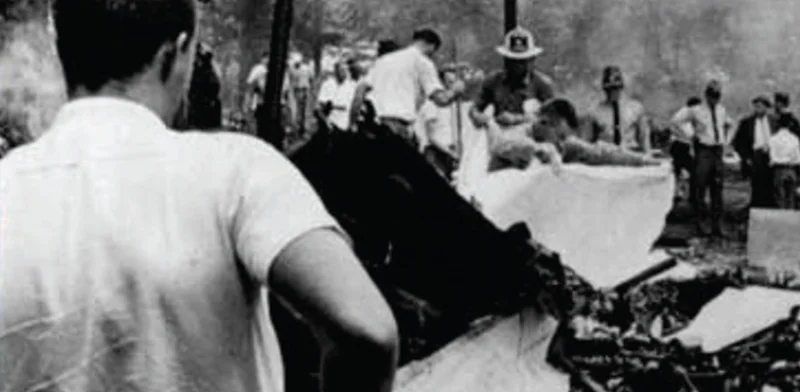
Piedmont Airlines Flight 22 collided with a twin-engine Cessna 310 over Hendersonville, North Carolina. Both aircraft were destroyed, killing all passengers and crew including defense advisor John T. McNaughton.
The accident highlighted the dangers of mixed commercial and private aviation traffic. New air traffic control procedures emerged to prevent similar mid-air collisions.
1989 – United Airlines Flight 232 Crash in Iowa
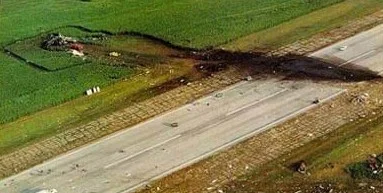
United Airlines Flight 232 crashed in Sioux City, Iowa, killing 111 people after complete hydraulic failure. The crew’s heroic efforts saved 185 lives in nearly impossible circumstances.
The accident led to significant improvements in aircraft design and emergency procedures. The crew’s innovative use of engine thrust for control became a legendary example of aviation skill.
1997 – IRA Ceasefire Resumes
The Provisional Irish Republican Army resumed its ceasefire, ending their 25-year paramilitary campaign against British rule in Northern Ireland. The decision opened the door for peace negotiations.
The renewed ceasefire created conditions for the Good Friday Agreement the following year. This crucial step toward peace transformed Northern Ireland’s political landscape.
Sports and Recreation on July 19
1903 – Maurice Garin Wins First Tour de France
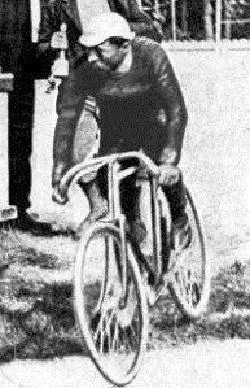
Maurice Garin achieved cycling immortality by winning the inaugural Tour de France. The French cyclist completed the grueling 2,428-kilometer route in just over 94 hours.
Garin’s victory established the Tour as cycling’s premier event and launched a tradition lasting over a century. The race would grow to become one of the world’s most prestigious sporting competitions.
1952 – Helsinki Olympics Begin
The Summer Olympics opened in Helsinki, Finland, marking the first time the Games were held in Northern Europe. The event brought together athletes from 69 nations.
The Helsinki Olympics were notable for the Soviet Union’s first participation and the return of Germany and Japan. The Games demonstrated sport’s power to unite nations during the Cold War.
1980 – Moscow Olympics Open Despite Boycott
The Summer Olympics opened in Moscow despite a major boycott led by the United States. The Games proceeded with 80 nations participating, down from the usual number.
The boycott reflected Cold War tensions following the Soviet invasion of Afghanistan. Despite political controversies, the Games showcased impressive athletic performances and Soviet organizational capabilities.
Notable Births on July 19
1958 – Brian May, Queen Guitarist and Astrophysicist

Brian May entered the world in London, England, destined to become one of rock music’s most distinctive guitarists. His childhood fascination with astronomy would parallel his musical development.
May would achieve fame as Queen’s lead guitarist while simultaneously pursuing advanced studies in astrophysics. His unique combination of scientific intellect and musical genius created some of rock’s most memorable songs.
1922 – George McGovern, Presidential Candidate

George McGovern was born in Avon, South Dakota, beginning a life dedicated to public service. His family’s farming background instilled values of hard work and social justice.
McGovern would serve as a U.S. Senator and become the Democratic presidential nominee in 1972. His progressive politics and opposition to the Vietnam War defined liberal American politics for decades.
1976 – Benedict Cumberbatch, Actor

Benedict Cumberbatch was born in London, England, into a family with strong theatrical traditions. His parents’ careers in acting influenced his early interest in performance.
Cumberbatch would achieve international fame portraying Sherlock Holmes in the BBC series and various film roles. His distinctive voice and commanding presence made him one of Britain’s most recognizable actors.
1921 – Rosalyn Sussman Yalow, Nobel Prize Winner
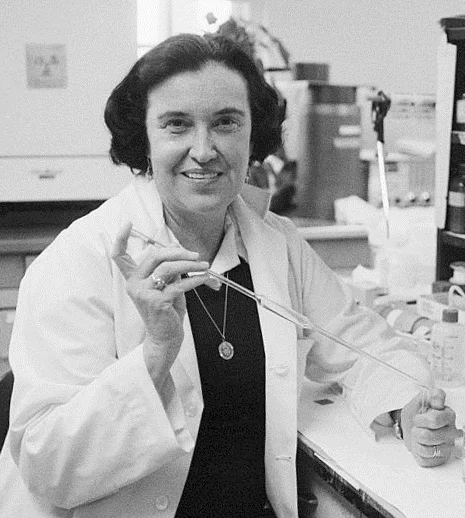
Rosalyn Sussman Yalow was born in the Bronx, New York, showing early aptitude for mathematics and science. Her determination overcame gender barriers in academic physics.
Yalow would win the Nobel Prize in Physiology or Medicine for developing radioimmunoassay techniques. Her groundbreaking work revolutionized medical diagnosis and research capabilities.
1970 – Nicola Sturgeon, Scottish First Minister

Nicola Sturgeon was born in Irvine, Scotland, into a working-class family with strong political awareness. Her early exposure to social issues shaped her political convictions.
Sturgeon would become Scotland’s First Minister and lead the Scottish National Party’s independence movement. Her political career centered on Scottish sovereignty and progressive social policies.
1971 – Vitali Klitschko, Boxing Champion and Mayor

Vitali Klitschko was born in Belovodsk, Kyrgyzstan, during the Soviet era. His athletic ability and intelligence would carry him to success in multiple fields.
Klitschko would become heavyweight boxing champion and later Mayor of Kyiv. His transition from sports to politics demonstrated the influence athletes can wield in public service.
Notable Deaths on July 19
1947 – Aung San, Burmese Independence Leader
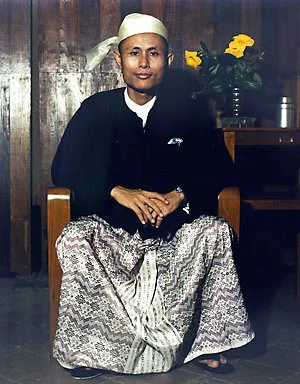
Aung San, the architect of Burmese independence, died at age 32 when assassins struck during a cabinet meeting. His death shocked the nation and derailed independence negotiations.
The young general had united Burma’s diverse ethnic groups in the struggle against British colonial rule. His assassination created a power vacuum that would plague Burma for decades.
1992 – Paolo Borsellino, Anti-Mafia Judge
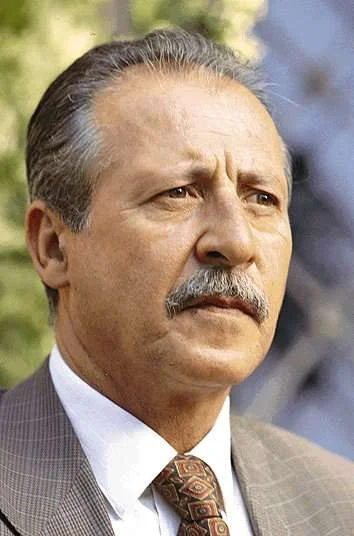
Paolo Borsellino, Italy’s courageous anti-mafia prosecutor, died when a car bomb exploded outside his mother’s apartment. The attack killed him and five bodyguards in a massive explosion.
Borsellino had dedicated his career to dismantling organized crime networks despite constant death threats. His assassination marked the peak of the Mafia’s war against the Italian state.
1969 – Mary Jo Kopechne, Political Aide
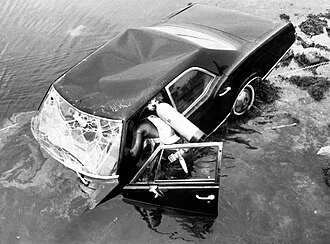
Mary Jo Kopechne died when Senator Ted Kennedy’s car plunged into a tidal pond at Chappaquiddick Island, Massachusetts. The incident destroyed Kennedy’s presidential aspirations and raised questions about his conduct.
The tragic accident occurred after a political gathering, and Kennedy’s delayed reporting to authorities created a lasting scandal. Kopechne’s death became one of American politics’ most controversial incidents.
2019 – Rutger Hauer, Dutch Actor

Rutger Hauer, the iconic Dutch actor known for his role in “Blade Runner,” died at age 75 at his home in the Netherlands. His distinctive presence and piercing blue eyes made him unforgettable on screen.
Hauer’s portrayal of the replicant Roy Batty became one of cinema’s most memorable performances. His “Tears in Rain” monologue remains a masterpiece of science fiction filmmaking.
2014 – James Garner, Television and Film Star

James Garner, beloved star of “The Rockford Files” and “Maverick,” died at age 86 in his Los Angeles home. His easy charm and natural acting style made him a television legend.
Garner’s career spanned six decades, from western television series to romantic comedies. His portrayal of reluctant heroes resonated with audiences and influenced generations of actors.
2024 – Nguyễn Phú Trọng, Vietnamese Communist Leader
Nguyễn Phú Trọng, General Secretary of the Communist Party of Vietnam, died at age 80 after leading the country for over a decade. His death marked the end of an era in Vietnamese politics.
Trọng had overseen significant economic reforms while maintaining strict political control. His leadership balanced rapid modernization with traditional Communist Party authority.
Holidays and Observances on July 19
Martyrs’ Day in Myanmar
Myanmar observes Martyrs’ Day to honor Bogyoke Aung San and eight other leaders assassinated on this date in 1947. The national holiday commemorates their sacrifice for independence.
The observance includes ceremonies at the Martyrs’ Mausoleum in Yangon and government-sponsored events nationwide. Despite political turmoil, the day remains important for Myanmar’s national identity.
Liberation Day in Nicaragua
Nicaragua celebrates Liberation Day, also known as Sandinista Day, marking the 1979 overthrow of the Somoza dictatorship. The holiday honors the revolutionary struggle for freedom and democracy.
Government ceremonies and popular celebrations occur throughout the country on this national holiday. The day reflects Nicaragua’s complex political history and ongoing debates about governance.
Christian Feast Days
The Catholic Church observes the feast days of several saints including Arsenius, Justa and Rufina, and Macrina the Younger. These commemorations honor early Christian martyrs and religious figures.
Eastern Orthodox churches follow their own liturgical calendar for July 19, celebrating different saints and religious observances. These traditions maintain connections to Christianity’s ancient roots and diverse expressions.
